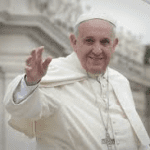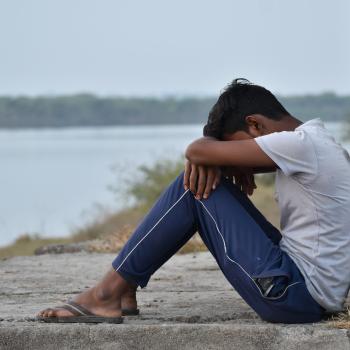But my sense is strong that the real battle in this situation is being waged on a different level and in a different way. The chorus that sounds in my ears is that of the online forums I came across today, where Christians in Australia and Zimbabwe, Russia and Mexico, America and South Korea, the Netherlands and Italy and South Africa—all called on each other to pray for our brother Youcef, for his attorney, Mohammed Ali Dadkhah, and for Youcef's wife, Fatemah, and his two young sons, Daniel and Yoel.
Some commentators in the West lament that the mainstream media have given the Nadarkhani case little coverage—and that may be true, at least in a relative sense. But I doubt that there is any topic on which God is receiving as many petitions from His people at the moment. If we could hear what He is hearing, in many tongues and from every continent, I think our perspective might change.
And perhaps it should. One thing the Nadarkhani case puts in perspective is the indifference and confusion of the modern West about religious liberty. The month of September 2011 has witnessed an odd juxtaposition: two situations in which different governments have objected in different ways to the practice of Christian faith. One situation is that of Iran and Youcef Nadarkhani, a stark drama in which religious persecution is obvious and life and death are at stake.
The other is a case in the UK, in which the owner of a Christian café has been warned by the police that he must desist from displaying Bible verses on a wall-mounted screen, because doing so amounts to displaying "offensive or insulting words," and puts him in violation of Britain's Public Order Act. The incident, with its disquieting implications, is one in a continuing series of attempts to criminalize the public exercise or profession of Christian beliefs.
Another example is an "equality" law proposed in Parliament in 2009, which, according to proponents, would have made it illegal for religious organizations to decline to hire homosexuals for non-preaching positions (e.g., secretarial staff or youth workers). The law lost a vote in the House of Lords in 2010, but shelving the bill has put Britain at odds with the European Union, and at least one British advocacy group promises that "the Government will be prosecuted in the European Court of Justice."
Britain and the EU don't propose to put anyone to death over the practice of faith. In our eyes that makes their approach lawful and tolerable—in contrast to Iran's approach, which slips the hangman's noose around human rights. But is it better to "merely" criminalize Christian beliefs? Whether the punishment is death or loss of liberty, the requirement is essentially the same: to accept the ruling of the state that one's beliefs are a prohibited offense.
I wonder whether God sees the trend of Western governance as all that different from the behavior of revolutionary Iran. The brutal logic of the Iranian extremists is, in a way, more honest than the complacency of the West. The conflicts it produces are more plain and apparent. I detect an echo of Pilate washing his hands in the Iranian Supreme Court's referral of the Nadarkhani case back to the lower court for final action. Even Iran's revolutionary Islamist leaders are ultimately ambivalent about how to handle Nadarkhani. Besides the civilized Persian sensibility—long suppressed by the 1979 revolution—that recoils from the harshness of sanguinary Islamism, there are also pressing concerns (like Pilate's) about how the outcome of the case will affect public order. I suspect the decision-makers in Iran are facing real fears and doubts in this instance.
Threatened with death in such circumstances, Youcef Nadarkhani will not sell his Savior for any price. He sees clearly the contrasts and decisions in which "the hearts and thoughts of many are revealed, so that the faith is tested."
But when Western Christians are being tested, we are less likely to recognize it. If we could see the human reaction to the Nadarkhani case through God's eyes, we would probably be much more impressed by the mighty roar rising up from His people throughout the earth than by the postures of Western governments. And if we could see, through His eyes, our own reaction to the maneuvers of Western governments against the liberty of Christians, I suspect we would be startled and shamed by the inattention and the dull, distracted silence.
We may think that the great question of our age is whether the gospel of Jesus Christ is acceptable to the European Parliament, but that is not what God wants to communicate with us about. He will speak through the situations of His choosing to say what He wants to say. Youcef Nadarkhani has made himself available for that purpose. Through him, many eyes may be opened to the sureness and power of the hands in which he has placed himself.





